Description
About the Author
DAYMOND JOHN is CEO and founder of FUBU, a celebrated global lifestyle brand with over billion in sales. He is one of the country’s most visible and respected entrepreneurs as one of the stars of ABC series Shark Tank. He is the author of the instant New York Times bestseller The Power of Broke, as well as the bestsellers Display of Power and The Brand Within. Daymond has received over 35 awards, including Brandweek Marketer of the Year and Ernst & Young’s New York Entrepreneur of the Year Award. He is CEO of The Shark Group, a premiere consulting firm whose clients range from Fortune 500 companies to new media businesses to celebrities. President Obama appointed Daymond a Presidential Ambassador for Global Entrepreneurship, a position focused on promoting entrepreneurship around the world.
Excerpt. © Reprinted by permission. All rights reserved.
One
All Rise
My thing is to push, to reach, to grind. I get up—before the sun, some mornings—and start grinding at my goals, hard. I go to sleep—stupid-late, most nights—still grinding. Because when I hear people say there isn’t time enough in the day to do everything they need to do, it gets me hot, and not in a good way. Time enough? Yeah, I get that it sometimes feels like there aren’t enough hours in the day, but the feeling only hits me when I’m not using those hours wisely. When I’m not efficient, organized, on it. But if I’m on top of my game, in tireless pursuit, there’s always time. And if it starts looking like the clock is about to run out on me, I’ll work even harder.
I’m burning the midnight oil.
The early bird catches the worm.
Early to bed and early to rise makes a man healthy, wealthy, and wise.
You’ve heard all the expressions—probably got a few of your own to get you up and at ’em in the morning. Here’s one that inspired me, when I was just getting started: It’s time to make the donuts. Do you remember that Dunkin’ Donuts ad campaign? That was like a rallying cry to me and my boys! If you ask me, they should still be using those ads, but now we’re supposed to be “runnin’ on Dunkin’,” so those days are gone. Still, I’ve done some work with the company over the years, which seems fitting because it reaches all the way back to what got me up and runnin’ when I was a kid.
(Hey, bet you didn’t know—those spots were named one of the five best commercial campaigns of the 1980s by the Television Bureau of Advertising, so obviously they made an impression on lots of people, not just on me.)
I’ll tell you, when those time to make the donuts ads first hit, they got me thinking. I’d see that guy with the mustache, Fred the Baker, getting up at some ridiculously early hour and shuffling off to the donut shop to start his day, and I got the message that hard work was hard work. That when a thing needs doing you’ve got no choice but to get your butt out of bed and do it. It might seem obvious, but you have to realize, outside of my mother, there weren’t too many positive examples of folks in my neighborhood rising and grinding in this way—getting up and getting things done when everyone else you know is dead asleep (that said, looking back, I realize it’s not that no one in my neighborhood was rising and grinding—it’s just that they were up early and off to do their thing, so I never saw them).
Point is, these days, when I stumble out of bed to catch a predawn flight to who knows where, and shuffle to the bathroom to brush my teeth and splash some water on my face, I’ve still got that phrase bouncing around in my head . . . It’s time to make the donuts.
Maybe there’s some other phrase that gets you going, like this great line: The dream is free. The hustle is sold separately.
Or this quote I once heard from Jerry Rice, the legendary football player: Today I will do what others won’t, so tomorrow I can accomplish what others can’t.
Then there are these oldies but goodies:
A little hard work never killed anybody.
Hard work is the yeast that raises the dough.
No one ever drowned in sweat.
We’ve given ourselves these little bumper-sticker expressions, and we’ve repeated them into the ground. And that’s exactly where the trouble starts. See, these phrases have become clichés, and the thing about clichés is that we tend to race over them. We hear the words but not the truth they have to tell us. They become like background music. We forget why they caught on in the first place.
But it’s not about the words, for me. The words, they’ll only get you so far. It’s about the action. It’s about the goals you set for yourself and how you go after them. It’s about the structure you lay out and your ability to stick to it. It’s about whether you actually get up and make the donuts, or you just think about it. Doesn’t matter what you say you’ll do . . . doesn’t matter what you mean to do . . . doesn’t matter what you hope to do . . . None of that matters until you rise and grind and get to it.
Think Big
There’s no cap on what you can accomplish.
If you can picture it, you can make it so.
Be the change you want in your life.
We hear these kinds of mantras from motivational gurus all the time. But they often leave out the most important part: if you’re willing to put in the work.
I know this because I’ve lived this. I know this because I grew up watching my mother find a way to work two or three jobs and still keep a close watch on me to make sure I didn’t get into any trouble. Once I caught the reading bug a little later on in life, I was all over books like Who Moved My Cheese? and The One Minute Manager, but my mother’s good influence found me in a more organic way. She was a daily inspiration to me, just by the way she carried herself. Her grind was the background music to my growing up. It was in the air and all around. I talk all the time about the ways she set the bar high for me—like when she hung up a giant can opener on the wall in our house, with a sign saying think big, to give me something to shoot for, to reach for each and every day. Those words were such a meaningful reminder to me I put up a think big sign of my own in the reception area at Blueprint + Co, the coworking space I opened up in midtown Manhattan for executives and entrepreneurs, so the change agents who shared our space would get a daily jolt of my mother’s homespun advice.
Think big! There’s no other way to think, if you ask me. Anything less than big, what’s the point?
But my mother didn’t just teach me to think big. She also taught me to reach big, to go big. One of the things she used to get on me about was whenever I’d say I didn’t want to take the time to put into this or that. I’d throw up my hands and say something like, “It’ll take too much time.” And she’d just shake her head and say something like, “Daymond, the time will pass anyway. Might as well use it productively.”
Out of that, I came up with a line of my own: “The time will never be perfect, so you can only make perfect use of your time.”
(I’m still using that one!)
You know, one of the positive habits I’ve developed in this area has more to do with what I don’t do than with what I do do, and it goes to making sure I have “time enough” for the big stuff. And what I don’t do is watch a lot of television. That was never really my thing, although these days, with all these great, great shows like The Walking Dead and Game of Thrones that everyone seems to be binge-watching left and right, it gets tougher and tougher to resist that temptation. I’m made to feel like I’m missing out, and I guess I am, but I’ve got things to do, man. Nothing against all you folks who make the time to binge-watch these shows, but it doesn’t feel to me like I have all that time to sit in front of the television. Oh, I’ll watch a nature show every once in a while, or a documentary. I’ll keep up on the news and anything educational or business-related. And, of course, I’ll be sure to tune in to every new Shark Tank episode. But I try to avoid all these great story-driven shows like Homeland or Empire. Why? Because they’re just stories. Because you get caught up in them. Because they’re addictive. Because there’s a lot I have to get done, and as good as these shows are, they’re not worth what I’d have to give up.
So my thing is, I don’t binge-watch. I’ll take the time to see a movie, but I can’t get caught up in six or seven seasons of a show, and every time I’m tempted to check out House of Cards or Orange Is the New Black or whatever, I think back to how things were with my mother, when it was just the two of us. When we just had our few local channels. I just can’t imagine ever seeing my mother getting so hooked on some show that she would spend an entire weekend catching up on old episodes—would never have happened.
Her good example became mine: get up early, work hard, do what you have to do, don’t complain, and do it all again the next day. The thing of it is, when I was a kid, my time wasn’t totally my own. My grind had to happen outside of school. Those eight hours a day we were in class, they were off the table. I’d get to school, go through the motions, and wait for the bell at the end of the day to tell me I could go off and do my thing. Later on, in high school, I started working in a co-op program with First Boston in Manhattan, so I was able to get a jump on what the real world might look like for me, so that became a part of my grind. That became my hustle—and soon as I set my mind to making money and chasing my own dreams, I started working my sidelines like they were a full-time deal. Like my life depended on it.
And, in a way, it did—but not just yet. The dreams, the hustle . . . they could only set me up for what was still to come.
Let’s forget for the moment the extra grind that came my way because school was so hard for me. For those who don’t know, I was dyslexic—I’ve written about it, talked about it, worked to call attention to it as one of the biggest obstacles to success for way too many kids. (For some of us full-grown kids, too!) In order for me to get by in school, I had to put in all this extra time just to keep up. Homework that took most kids an hour or two to complete took me four or five, so that just piled on even more time I had to slog my way past. But as a kid, all the way through high school, what choice did I have? I mean, it’s not like there was some pill I could take, the way there might be these days, say, to help a kid deal with his or her ADD or ADHD. And because it was something you couldn’t medicate, there wasn’t a whole lot of information, not a whole lot of helpful resources, because there was no way for the medical establishment to make any kind of money off of it. I wasn’t out there looking for a cure, wasn’t looking to hide behind the fact that I had some trouble reading, studying. Wasn’t looking for an escape. I was just looking for help. But you know what? If I could go back in time and take a magic pill, I wouldn’t. Because to fix my dyslexia, to overcome it, I had to work twice as hard, and maybe that’s another way I found my grind.
POWER FACT: Dyslexic entrepreneurs are more likely to launch multiple businesses, and to grow those businesses faster than nondyslexic entrepreneurs. . . . If you find yourself struggling with learning issues, know that you’re in good company: Richard Branson, Charles Schwab, Henry Ford, David Boies, Ted Turner, Tommy Hilfiger, and yours truly are just a few successful CEOs who’ve been diagnosed with dyslexia.
I wrote in my previous books about some of the tiny hustles I had going on back in the day. Fixing up old bicycles. Selling mirrors or pencils or whatever else to the other kids at school. Recycling broken toys. Shoveling snow. I had all these ways to make myself a little money so I could maybe go to the movies, buy myself a slice of pizza and a Coke . . . whatever. I don’t want to suggest we were dead broke, me and my mother. Wasn’t like that. We had a decent house, lived in a decent neighborhood—that is, until crack came along. Still, if I wanted a little extra walking-around money, maybe buy myself a new pair of kicks . . . that was on me.
I came to realize very early on that each one of my enterprises would live or die by the time I put into it. And so, when I was in the bike business, for example, that meant getting out the door early on Saturday morning before the garbage pickup and harvesting parts from the beat-up bicycles folks would leave for trash on the curb. It meant figuring out the best times to go dumpster-diving out behind the mirror factory for those little handheld mirrors, then finding time to hit up the Ideal toy store, where they used to throw away all the busted-up stuff the people would return. The bottom line was I needed to get a jump-start, stake out my territory, and do my thing in a hurry to make sure nobody else could beat me out of a deal.
Time is money—that’s another cliché you hear all the time in business. You hear it from young wannabe entrepreneurs, all the way up to the titans of industry, in the upper reaches of the one-percent class. First time I heard it, I owned it. Figured it out for myself, really. Came to me on one of my very first gigs, shoveling snow. In my neighborhood, you had to get out the door pretty damn early to make some paper shoveling snow. If you slept in, or dug out your own driveway first, or stopped to eat a good breakfast, your day was over before it ever started—because, let’s face it, the kiss of death in the snow removal industry, when everyone with a shovel and a strong back is working the same route, chasing the same business, is a late start.

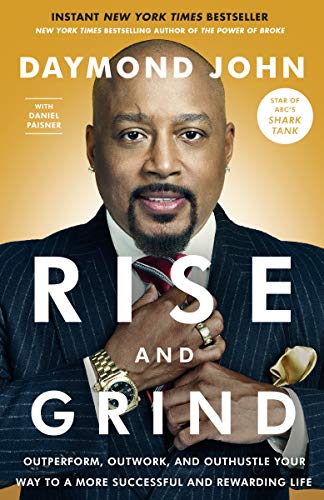
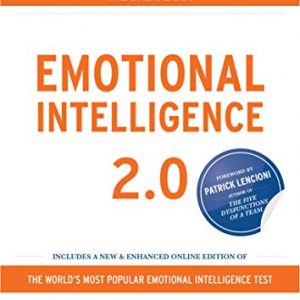
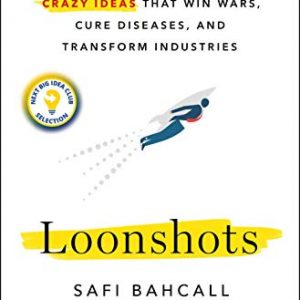
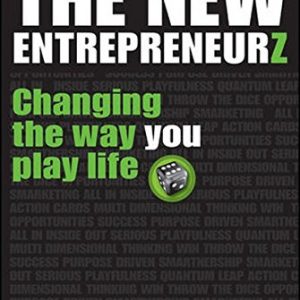
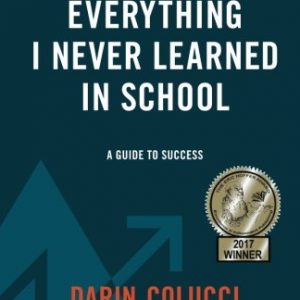
Reviews
There are no reviews yet.